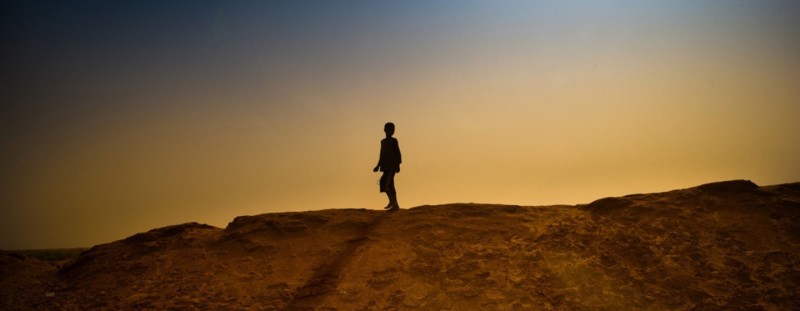Contents
© UNODC Zeinabou Maata is among a group of women working, with UN support, to prevent the spread of violent extremism in Mauritania.
“Our religion is a true, honest religion that treats women with justice and fairness,” she said, leaning forward for emphasis.
She knows of what she speaks. She is the daughter of Baba Ould Maata, a highly respected Mauritanian scholar.
Inspired by her father, Ms. Maata has embarked on her own journey of studying the Quran and other traditional texts from a young age, graduating from Mauritania’s largest Islamic institution and studying Islamic law at the post-graduate level.
Brought up in an Islamic household, Ms. Maata believes it is her responsibility and duty to give back to her community.
Community outreach
Known as the Mourchidates, religiously trained women like Ms. Maata are educating their communities on the risks of violent extremism.
Established in 2021 with the support of the UN Office on Drugs and Crime (UNODC), the Mauritanian Ministry of Islamic Affairs, and the Association of Women Heads of Household, the Mourchidates network works to combat violent extremism in various settings, including prisons, in Mauritania.
Mauritania belongs to the Sahel region in Africa, an area which has faced “an expansion of terrorism and extremist movements”, Ms. Maata said.
Starting in 2005, Islamic terrorists have carried out several attacks across the country, much to the dismay of devout Muslims and proud Mauritanians, she said.
Countering messages of hate
“We Mauritanians are tolerant and understanding of others, and we accept and welcome people from other religions,” she said. “These attacks were contrary to both Mauritanian culture and Islamic sharia.”
When asked how best to fight back against rhetoric that uses and distorts Islam, she said the answer is simple: “the Quran”.
Chosen specifically for their expertise on Islam, the women focus on using Islamic arguments to counter messages of hate and violence.
“We clarify verses from the Quran and explain the hadith [a collection of sayings from the Prophet Muhammad], both of which urge peace and civil and community security,” she said. “We point out the seven concepts that are used in extremist discourse, such as jihad, and use Islamic arguments that show the correct intention of these verses, which combats extremist ideologies.”
The Mourchidates determine where and which groups are at risk of falling prey to extremist arguments. They then use their network to facilitate dialogues at prisons, mosques, schools, markets, or even homes.
Extreme prison sentences birth extremist ideas
“Once, we Mourchidates visited a prison, the first time something like this had been allowed in Mauritania,” she said.
Inside, they discovered that one of the female prisoners had been a powerful leader within the Salafist Group, a conservative Islamic movement that follows the practices of early generations of Muslims.
“Extreme sentences often generate extremist ideas in prisons,” she relates. “We are proud that we were able to persuade her with religious arguments that Islam is a righteous and tolerant religion.”
Eventually, the prisoner announced her withdrawal from these extremist ideas and promised to get involved in activities that serve Mauritania’s security and civil peace, Ms. Maata said, adding that the woman had agreed to participate in a dialogue between religious scholars and former Salafists, sponsored by the Mauritanian Government.
UNICEF/Dragaj A boy walks on a sand bank surrounding a refugee camp in M’bera, Mauritania.
Early warning systems
In 2022, Mourchidate assistance reached more than 10,000 people. In Nouakchott, the Mourchidates supported the wives, sisters, and mothers of detainees, helping them to abandon violent, extremist ideas.
In Ould Yengé, near the borders with Mali and Senegal, the Mourchidates have contributed to an early warning system by alerting law enforcement forces of suspicious cases.
Meanwhile, in Adel Bagrou, a city bordering Mali, the Mourchidates network provided support to young victims of terrorism who had found refuge in Mauritania, facilitating their integration into everyday life in their new country.
Mauritania has not experienced a single terrorist attack since 2011, thanks in part to the efforts of people like Zeinabou and the network, according to UNODC.
“Women are capable of achieving anything they set their mind to,” Ms. Maata said. “They have the gift of being persuasive, tipping the scales in their favour, and they should use this ability to help serve their countries.”
Learn more about UNODC’s Sahel gender initiatives here.
UN Counter-Terrorism Week is being held at UN Headquarters in New York from 19 to 23 June. Learn more here.

2023 UN News User Survey
Thank you in advance for agreeing to participate in our survey so we can improve and tailor our products to your needs. The survey will take no more than 4 minutes to complete.




Comments are closed, but trackbacks and pingbacks are open.